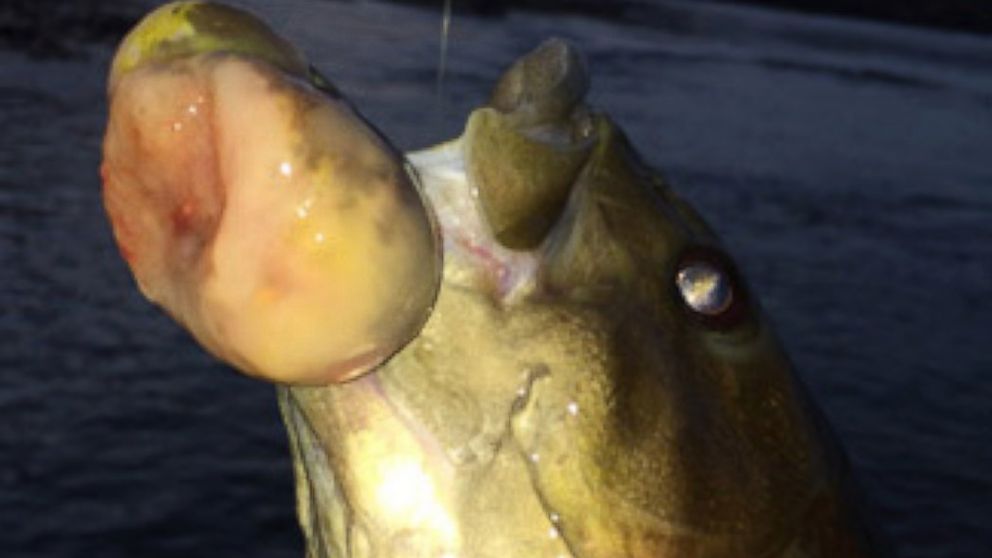Smallmouth Bass With Cancerous Tumor Raises Concerns in Pa.
The fish was caught in the Susquehanna River by an angler late last year.

— -- A smallmouth bass caught last fall has been confirmed to have a cancerous tumor on its mouth, according to the Pennsylvania Fish and Boat Commission.
The PFBC announced on Monday that two independent laboratory tests confirmed a malignant, or cancerous, tumor on a single smallmouth bass caught in the Susquehanna River by an angler late last year. It is the only documented case of this type of tumor being found on the fish in Pennsylvania.
Cancerous growths and tumors on fish are extremely rare in Pennsylvania and throughout the U.S., but they do occur, according to the agency.
PFBC Executive Director John Arway said in a news release that although the finding represents only one individual fish from the overall population, it provides additional evidence that the health of the fish residing in the Susquehanna River is being compromised.
"As we continue to study the river, we find young-of-year and now adult bass with sores, lesions and more recently a cancerous tumor, all of which continue to negatively impact population levels and recreational fishing," he said. "The weight-of-evidence continues to build a case that we need to take some action on behalf of the fish."
Since 2005, biologists have found find sores and lesions on young bass during late spring and early summer surveys at "alarming" rates, according to the agency.
Dr. Karen Murphy, acting Secretary of the Pennsylvania Department of Health, said: "There is no evidence that carcinomas in fish present any health hazard to humans. However, people should avoid consuming fish that have visible signs of sores and lesions."
Since 2012, the PFBC has unsuccessfully petitioned the state Department of Environmental Protection to add the river to the state's bi-annual list of impaired waterways.
"The impairment designation is critical because it starts a timeline for developing a restoration plan," said Arway. "We've known the river has been sick since 2005, when we first started seeing lesions on the smallmouth. Now we have more evidence to further the case for impairment."
"If we do not act to address the water quality issues in the Susquehanna River, Pennsylvania risks losing what is left of what was once considered a world-class smallmouth bass fishery," he said.




